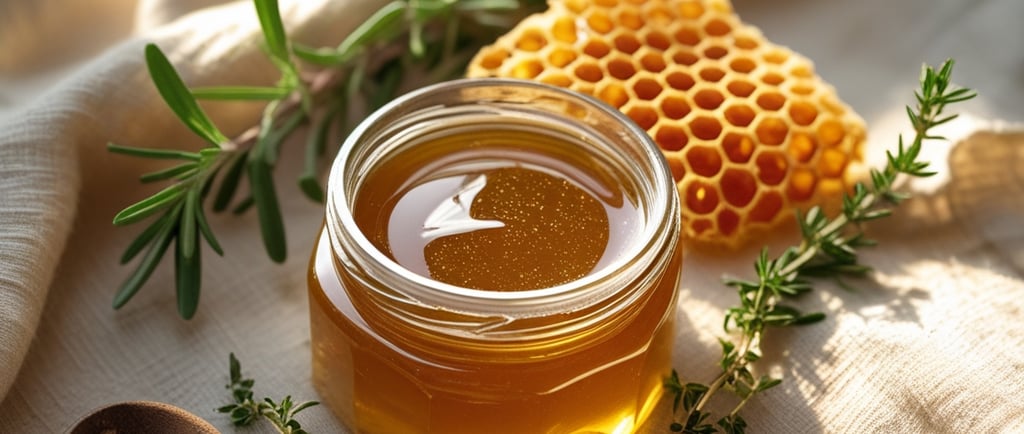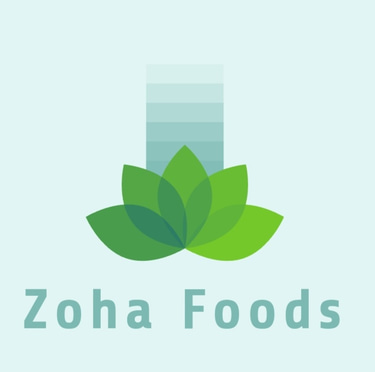Why Organic Honey Is Considered a Superfood (2025 Guide)
Discover why organic honey is considered a superfood in 2025. Learn about antioxidant rich honey enzymes, health benefits, skincare uses, and sustainability.
HONEY
Zia Khan
9/4/20254 min read


For centuries, honey has been treasured as nature’s golden elixir. In 2025, organic honey is increasingly recognized as a superfood due to its unique combination of natural nutrients, antioxidants, and holistic benefits. Unlike regular or processed honey, organic honey is harvested under strict conditions—free from synthetic chemicals, antibiotics, and genetically modified crops. But what exactly makes organic honey worthy of the “superfood” title? Let’s explore.
What Makes a Food a Superfood?
The term superfood refers to foods rich in essential nutrients, antioxidants, and health-supporting compounds. While it isn’t a scientific classification, nutritionists and researchers often use it to describe foods like blueberries, chia seeds, and turmeric.
Honey earns its place among these powerhouse foods because it contains:
Natural antioxidants (flavonoids and polyphenols)
Amino acids and enzymes
Trace vitamins and minerals
Antibacterial compounds such as hydrogen peroxide
👉 Related read: Organic Honey Benefits – Complete 2025 Guide
Nutrient Profile of Organic Honey
Organic honey is more than just natural sugar. It contains bioactive compounds that make it stand out compared to regular or processed honey.
Key Nutrients in Organic Honey
Antioxidants – Flavonoids and phenolic acids that help combat oxidative stress.
Enzymes – Such as glucose oxidase, which contributes to honey’s antibacterial activity.
Amino Acids – Essential for metabolism and cellular repair.
Minerals – Potassium, zinc, calcium, magnesium, and iron.
Vitamins – Trace amounts of B-complex vitamins and vitamin C.
According to the National Honey Board, raw organic honey retains more bioactive compounds than pasteurized honey, making it nutritionally superior.
Organic Honey vs Regular Honey: Why It Matters
Organic Honey
Harvested from bees that forage on pesticide-free flowers
Processed without heating or chemical additives
Rich in pollen, propolis, and enzymes
Regular Honey
May involve pesticide exposure or antibiotic use
Often pasteurized or ultrafiltered, reducing nutrients
Sometimes diluted with corn syrup or sugar
👉 For a full comparison, check out: Organic Honey vs Regular Honey – Key Differences & Benefits (2025 Guide).
Antioxidant Powerhouse
One of the main reasons organic honey is considered a superfood is its antioxidant content. Antioxidants protect the body against oxidative stress, which contributes to chronic illnesses and aging.
A 2024 study published in the Journal of Food Science and Nutrition confirmed that organic honey has significantly higher antioxidant activity compared to conventional honey.
Antioxidant-rich foods like organic honey may help:
Support cardiovascular health
Reduce inflammation
Promote healthy skin aging
Natural Antibacterial Properties
Organic honey has been used for wound healing since ancient times. Its antibacterial effects are linked to:
Hydrogen peroxide release from enzymes
Low water content that inhibits bacterial growth
Acidity (low pH) that creates an unfriendly environment for pathogens
The Mayo Clinic recognizes honey, particularly raw organic honey, as a natural option in wound care, though it should never replace professional medical treatment.
Digestive and Metabolic Support
Many people use organic honey as a natural alternative to refined sugar. Unlike table sugar, honey contains small amounts of enzymes and amino acids that may support digestion.
Benefits may include:
Helping balance gut microbiota
Providing quick natural energy before workouts
Supporting enzyme activity for better metabolism
⚠️ Note: Despite these advantages, honey is still a sugar and should be consumed in moderation.
Boosting Immunity Naturally
While no single food can “boost immunity” on its own, nutrient-dense foods like organic honey play a supportive role. Its pollen, antioxidants, and trace minerals may help the body maintain overall immune function.
Some holistic practitioners suggest organic honey for seasonal wellness and throat comfort, though scientific evidence remains mixed.
Skin and Beauty Uses
Beyond the kitchen, organic honey is prized in skincare. Its enzymes and antibacterial compounds make it a natural ingredient for beauty routines.
Moisturizer – Hydrates dry skin when applied as a mask.
Exfoliant – Gently removes dead skin cells when combined with oatmeal.
Acne Care – Its antibacterial nature may help soothe blemishes.
The global demand for honey-based skincare products is rising, showing how organic honey is considered a superfood not only for nutrition but also for holistic self-care.
Environmental & Ethical Impact
Another reason organic honey earns the superfood label is its contribution to sustainability. Choosing organic honey supports:
Bee welfare – No exposure to toxic chemicals
Biodiversity – Healthier ecosystems with pesticide-free pollination
Fair trade – Supporting small-scale farmers and ethical beekeeping
The Food and Agriculture Organization (FAO) highlights organic beekeeping as a crucial practice for biodiversity and food security.
How to Identify Authentic Organic Honey
Not all honey labeled “organic” is truly organic. To ensure authenticity:
Look for certification labels such as USDA Organic, EU Organic, or POCC.
Buy from trusted local beekeepers.
Raw organic honey tends to crystallize naturally—a sign of authenticity.
Avoid overly clear honey, which may be ultra-filtered.
Common Myths About Organic Honey as a Superfood
Myth 1: All raw honey is superfood honey.
❌ Not true. Raw honey may still come from pesticide-exposed flowers. Only certified organic honey guarantees purity.Myth 2: Organic honey doesn’t expire.
❌ False. While pure honey can last indefinitely, improper storage can degrade its quality.Myth 3: Organic honey is calorie-free.
❌ Completely false. Honey is still sugar and should be consumed in moderation.
How to Use Organic Honey Daily
Stir into tea or warm lemon water
Spread on whole grain toast
Blend into smoothies and shakes
Use in marinades and salad dressings
Add to DIY face masks for skincare
Conclusion
Organic honey is not just a natural sweetener—it’s a nutrient-rich superfood with antioxidants, enzymes, and holistic benefits that set it apart from regular honey. From nutrition and skincare to sustainability and bee welfare, it truly embodies the qualities of a modern superfood.
If you’re looking to improve your diet while supporting ethical farming, certified organic honey is worth making a staple in your lifestyle.
FAQs About Organic Honey as a Superfood
1. Why is organic honey called a superfood?
Because it contains antioxidants, enzymes, and natural compounds that go beyond basic nutrition.
2. Can I replace sugar with organic honey completely?
Honey can be a healthier alternative, but it should still be consumed in moderation.
3. Is organic honey better than manuka honey?
Both have unique benefits. Organic honey focuses on chemical-free purity, while manuka honey is valued for specific antibacterial activity.
4. Does organic honey help with weight loss?
It may be a healthier sweetener for balanced diets, but it’s not a weight-loss cure.
5. How can I store organic honey properly?
Keep it in a sealed glass jar at room temperature, away from direct sunlight.
